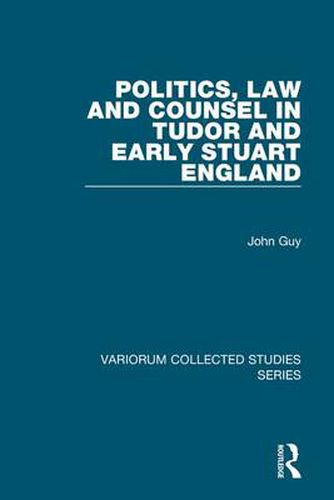Readings Newsletter
Become a Readings Member to make your shopping experience even easier.
Sign in or sign up for free!
You’re not far away from qualifying for FREE standard shipping within Australia
You’ve qualified for FREE standard shipping within Australia
The cart is loading…






This book investigates the norms and values of Tudor and early-Stuart politics, which are considered in the contexts of law and the Reformation, legal and administrative institutions, and classical and legal humanism. Main themes include ‘imperial’ monarchy and the theory of ‘counsel’, Parliament and the royal supremacy, conciliar politics and organization, the relationship of law and equity, and the jurisdictional rivalry between the courts of common law and canon law. The author argues that norms of Tudor England were sufficiently pluralist to satisfy both ‘absolutist’ and ‘constitutionalist’ aspirations, whereas by 1628 they proved no longer effective as a mechanism for the orderly conduct of politics. The clash between two conflicting sets of values was translated into a clash of ideologies.
$9.00 standard shipping within Australia
FREE standard shipping within Australia for orders over $100.00
Express & International shipping calculated at checkout
Stock availability can be subject to change without notice. We recommend calling the shop or contacting our online team to check availability of low stock items. Please see our Shopping Online page for more details.
This book investigates the norms and values of Tudor and early-Stuart politics, which are considered in the contexts of law and the Reformation, legal and administrative institutions, and classical and legal humanism. Main themes include ‘imperial’ monarchy and the theory of ‘counsel’, Parliament and the royal supremacy, conciliar politics and organization, the relationship of law and equity, and the jurisdictional rivalry between the courts of common law and canon law. The author argues that norms of Tudor England were sufficiently pluralist to satisfy both ‘absolutist’ and ‘constitutionalist’ aspirations, whereas by 1628 they proved no longer effective as a mechanism for the orderly conduct of politics. The clash between two conflicting sets of values was translated into a clash of ideologies.